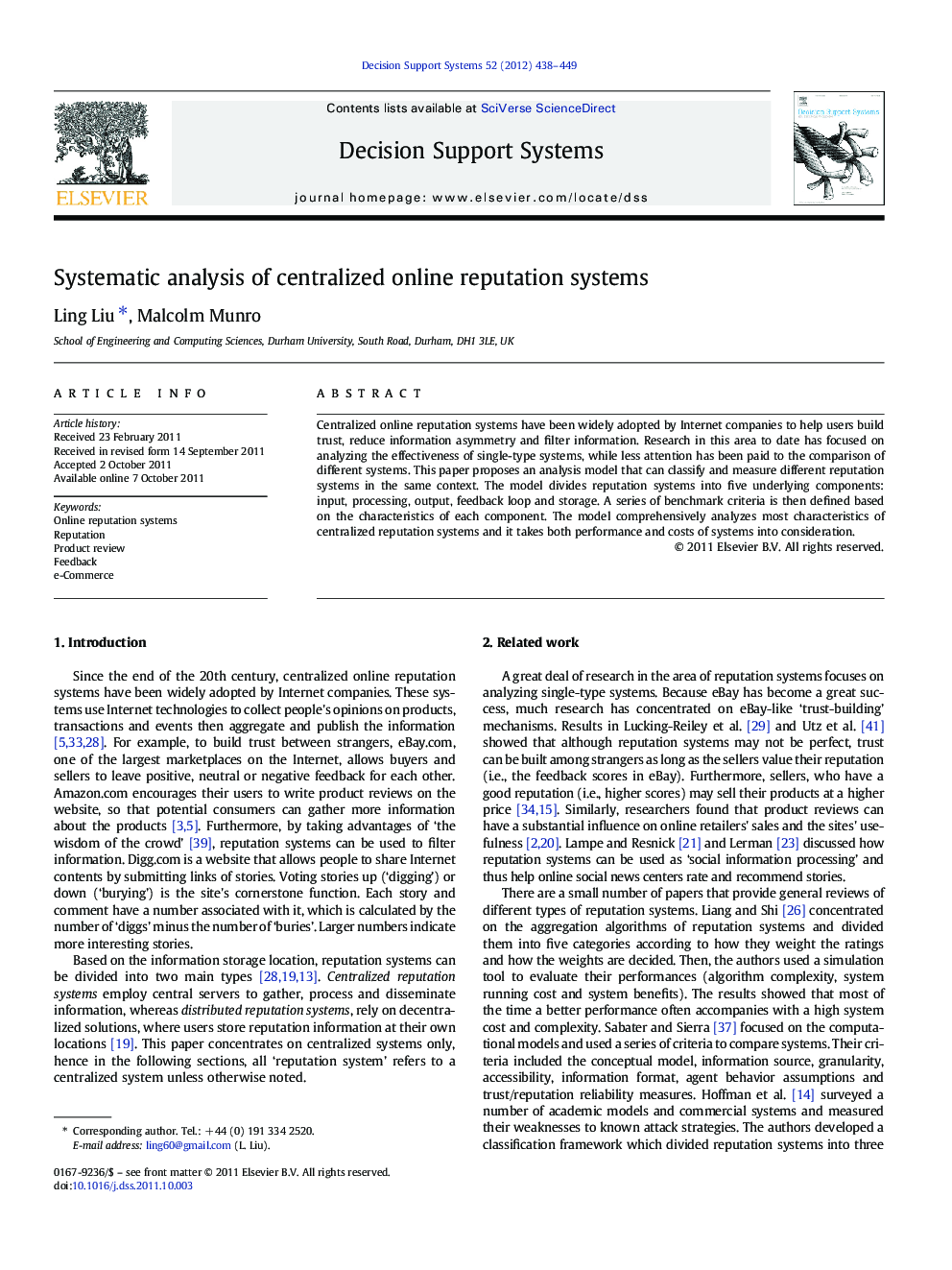| Article ID | Journal | Published Year | Pages | File Type |
|---|---|---|---|---|
| 553240 | Decision Support Systems | 2012 | 12 Pages |
Centralized online reputation systems have been widely adopted by Internet companies to help users build trust, reduce information asymmetry and filter information. Research in this area to date has focused on analyzing the effectiveness of single-type systems, while less attention has been paid to the comparison of different systems. This paper proposes an analysis model that can classify and measure different reputation systems in the same context. The model divides reputation systems into five underlying components: input, processing, output, feedback loop and storage. A series of benchmark criteria is then defined based on the characteristics of each component. The model comprehensively analyzes most characteristics of centralized reputation systems and it takes both performance and costs of systems into consideration.
► A number of widely used terms have been clearly defined. ► We proposed a systematic analysis model for centralized online reputation systems. ► The model divides reputation systems into five underlying components. ► The model considers both performance and costs of the reputation system.
